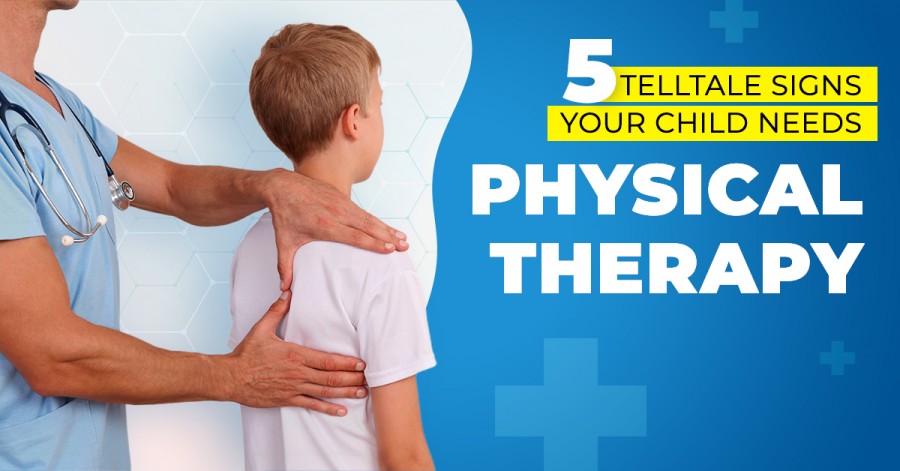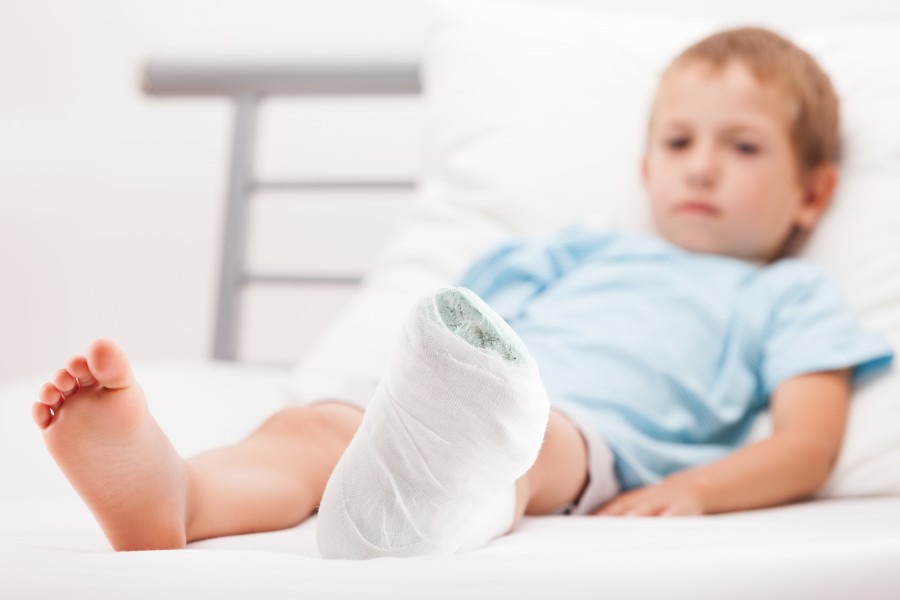5 Telltale Signs Your Child Needs Physical Therapy
Published 09 September 2021 at 16:13
Tickikids Blog Dubai > After-School Activities > 5 Telltale Signs Your Child Needs Physical Therapy

For the first few years of their lives, your children will gradually develop the motor skills needed to explore the world around them. Parents always look forward to those milestones, like the first time their kids sit up or start walking on their own.
However, sometimes, a child might experience difficulties with their motor skills and physical development. These issues can occur for a variety of reasons, including disability, illness, or injury.
Whatever the underlying cause is, physical therapy should help your kid get stronger or heal and achieve a higher quality of life. Early intervention is a must for addressing these issues. Thus, it is important that you watch out for these early telltale signs.

1. Not Hitting Important Milestones
Babies often just sleep and eat for the first few months. However, you should start checking if your little one is hitting their developmental milestones even at such a period.
Babies hitting their milestones can vary and can be influenced by numerous factors, including cultural and social backgrounds. However, if your child falls far outside the range of what's considered normal, then you need to consult a pediatric physical therapist and have them checked for developmental issues early on. Click here to know more about children's physical therapy services.
- Holding Their Heads Up
One of the first milestones that a newborn infant needs to accomplish is to hold their head up. A 3-month baby should be able to lift their head while on their stomach to look around. Otherwise, it can be an early sign of torticollis, a condition in which the baby's neck muscles are too tight to work properly.
- Rolling Over and Sitting
At four to six months, you can expect babies to start rolling over. At five to nine months, they should be able to learn how to sit and do it on their own. At first, babies will need to support their weight by propping themselves on their arms, progressing to sitting independently with their hands playing with toys. If your little one can't sit by this period, then they may have poor core strength or lack the postural reactions that should help them stay balanced.
- Crawling
Somewhere around eight to 10 months, babies should be able to crawl on their knees and hands. Crawling plays a critical role in your child's ability to skip, run, and do so much more when they grow up. Not being able to crawl could be the result of issues with strength, coordination, and vision.
- Walking
Next to crawling, your little one should now be learning how to stand and take their first step. Some babies can learn to walk as early as nine months, while others can take up to 18 months. A child who's not walking on their own beyond that should be evaluated in order to see what's causing the delay.
2. Toe Walking
When kids first learn how to walk, expect them to walk on their toes. This is only a temporary thing. So, if you notice that your little one is walking on their toes for over six months since they've learned how to walk, then it's essential that you have a physical therapist evaluate him.
If children continue to walk on their toes, it could lead to problems with bone alignment and muscles as they grow. A physical therapist should provide the needed strengthening and stretching exercises as well as evaluate whether braces are necessary to help your kid walk with their feet flat on the ground.
3. Coordination Difficulties
Once your kid has learned how to walk independently, you might think that you no longer have to worry. However, as they get older, there is more to watch out for, particularly in their coordination and balancing.
At three years old, a kid should be able to jump up, balance on one leg, and catch a ball. So, if your toddler seems to be a lot clumsier than their peers or has difficulty pedaling a bike or frequently falls, this could be an issue in their motor planning, coordination, and/or other underlying physical issues.
While comparing your kid with their age peers is not always a reliable tactic, it can be pretty helpful in detecting motor problems early.

4. Pain From Injuries
If your little one gets in an accident and their injury impairs their normal ability to accomplish tasks or range of motion, then you need to have it checked with a physical therapist immediately.
Injuries in children that often require physical therapy include:
- Broken bones
- Strains and sprains
- Tendon injuries
- Chronic leg or foot pain
- Shoulder pains
- Back injuries
- Sports injuries
Injuries can impact your kid's development and sometimes impair their normal growth patterns. For instance, a kid who breaks his arm after falling off the slide will need time to rebuild the strength of his muscles. In some cases, an injury may cause muscle atrophy because of cast placement that prevents motion until the bone heals.
Physical therapy should help in providing the proper rehabilitation exercise for a kid's age level, the severity of the injury, and physical health. It helps your kid regain maximum potential improvements and injury healing.
5. Mobility Challenges from Birth Defect and Developmental Disorders
Developmental disorders such as Down syndrome, birth defects, and premature birth can have an impact on your kid's growth and development.
Kids with developmental disorders usually have difficulties in improving their sensory and motor skills and physical problems, like low muscle tone, decreased strength, and looseness of ligaments, as seen in kids with down syndrome. This means they tend to experience walking instability, poor coordination, and balance, or delays in reaching small and large movement skills.
Physical therapy can help ensure that essential developmental skills are attained and provide these kids' special needs.
Meanwhile, premature babies and those with congenital disabilities, depending on the issue, can benefit from physical therapy as early as a few days old, helping them to catch up with their peers.
Conclusion
When your kid faces abnormal growth patterns, mobility challenges from a physical disorder, or chronic pain, physical therapy can help them recover. When you notice the above signs, start looking for a reliable specialist right away so you can ensure that your child grows healthy and happy.